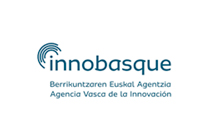 Aurreko ekintzak: Paula Banca. Cognitive control and dyscontrol: from neurobehavioral mechanisms to interventions
Aurreko ekintzak: Paula Banca. Cognitive control and dyscontrol: from neurobehavioral mechanisms to interventions
Paula Banca. Cognitive control and dyscontrol: from neurobehavioral mechanisms to interventions
What: Cognitive control and dyscontrol: from neurobehavioral mechanisms to interventions
Where: BCBL Auditorium and Auditorium zoom room (If you would like to attend to this meeting reserve at info@bcbl.eu)
Who: Paula Banca. PhD, Department of Neurosciences, University of the Basque Country UPV/EHU, Vitoria
When: Thursday, Sep 11th at 12:00 PM noon.
Cognitive control is a fundamental human ability that allows us to regulate our thoughts and actions, adapt to changing goals, and successfully navigate daily life. This ability relies on executive processes such as cognitive flexibility, inhibitory control, goal–habit arbitration and error monitoring, which form the foundation of higher-order functions like reasoning, problem solving, language and social behaviour. When these processes break down, the result is behavioural rigidity, impulsivity, and maladaptive patterns of thought and action, hallmarks of many psychiatric conditions. My research has focused specifically on compulsivity, one of the most severe forms of cognitive dyscontrol and a transdiagnostic phenomenon, occurring across psychiatric and neurodevelopmental disorders as well as in the general population.
In this talk, I will present my work on the neural and behavioural basis of compulsive behaviour, defined as irresistible actions performed despite harmful consequences. I will share findings from cutting-edge neuroimaging techniques and innovative behavioural paradigms that reveal how dysfunctions in executive processes contribute to the inability to suppress persistent maladaptive behaviours and how these processes are reflected in the brain. I will also discuss how these mechanistic insights can inform interventions aimed at restoring cognitive control in both clinical and non-clinical populations.








